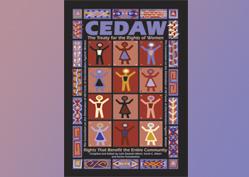26
November
2008

To prevent agreements concerning women from remaining lettre morte, a number of Arab parliamentarians gathered today at the UN House, Beirut, in the second regional workshop on the "Role of Parliamentarians in the Implementation of the Convention on the Elimination of All Forms of Discrimination Against Women (CEDAW)", co-organized by UN-ESCWA and the Division for the Advancement of Women at UN Headquarters (DAW).
Inaugurating the meeting, UN-ESCWA Executive Secretary, Bader Omar AlDafa, today said "The empowerment of women and the elimination of discrimination against them require major efforts in Arab countries and the world. Such efforts transcend the mere ratification of international agreements and the amendment of national laws, to reach continuous work and close follow-up, transforming rights that international agreements safeguard into a daily reality that women can experience and live in education, health, the household, at work, with the participation in public life and in decision-making".
Reservations and Amendments
Parliamentarians participating in the meeting, which extends until Friday 28 November, will discuss the necessity to amend national laws, allocate resources to face discrimination against women more efficiently, encourage public debate on the matter, and raise awareness of it. The Executive Secretary pointed in this regard that UN-ESCWA views the exchange of experiences in the area of withdrawing reservations as crucial. UN-ESCWA has organized a series of activities on the implementation of CEDAW in several Arab countries, including training workshops on drafting national reports on the convention. The Commission is also collaborating with DAW on a series of workshops to encourage parliamentarians to reconcile the articles of the Convention and national laws in the Arab region.
"CEDAW was ratified by 11 member countries, which have all had reservations over it", AlDafa explained, "however, some of these countries have recently withdrawn their reservations or introduced law amendments that are compliant with it. Such amendments included nationality, work, family, penal and parliamentary election laws in countries such as Jordan, Algeria, Syria, Kuwait, Lebanon, Egypt and Morocco", he said.
Old Convention
The United Nations General Assembly adopted CEDAW in December 1979. The Convention defines discrimination against women, including the right of women to equality and non-discrimination in civil, political, economic, social and cultural spheres. It binds member countries to adopt the policy of eliminating discrimination against women, and to take all measures to ensure it.





